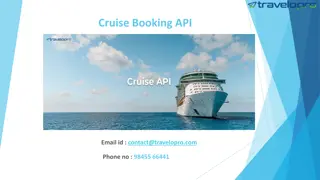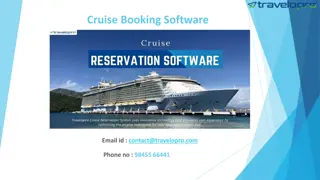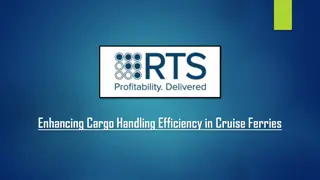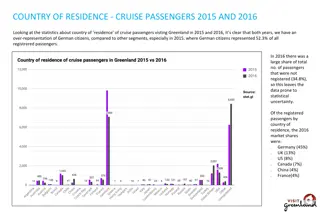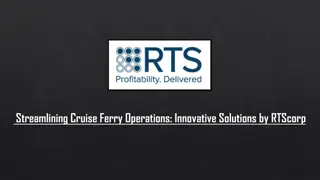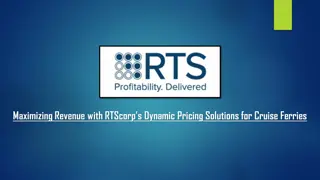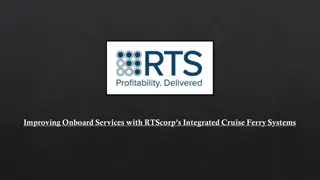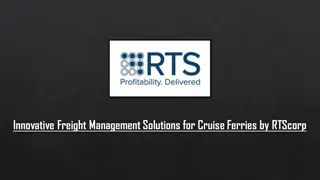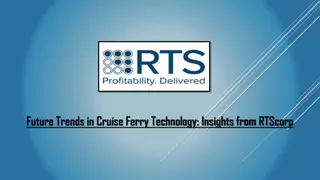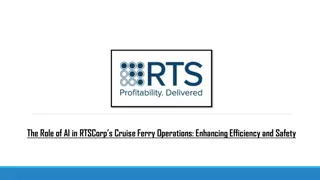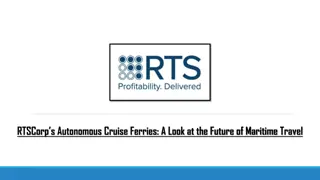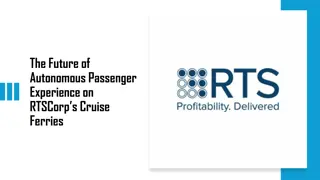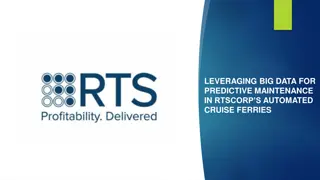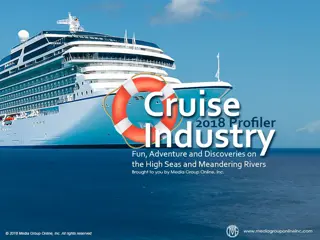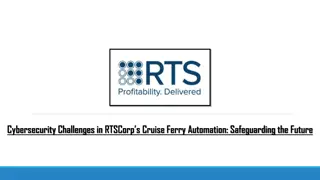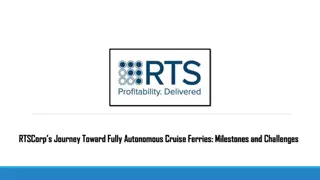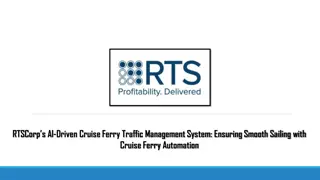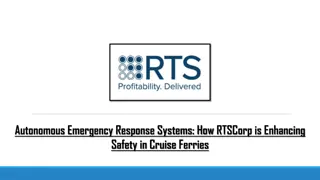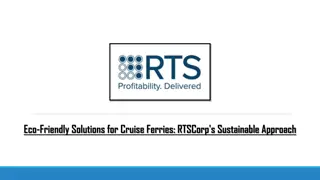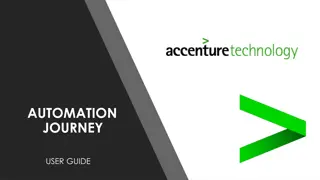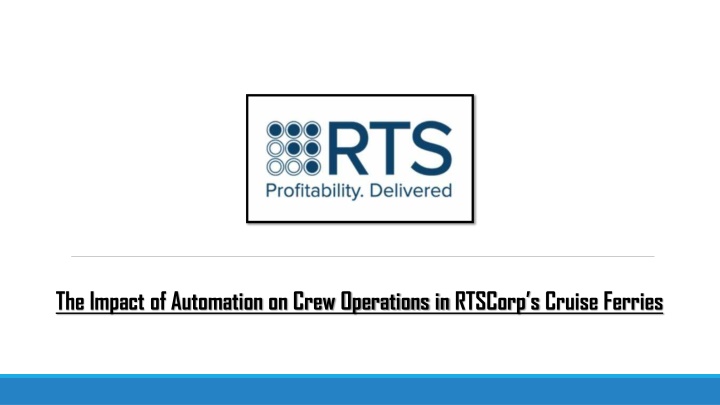
The Impact of Automation on Crew Operations in RTSCorp’s Cruise Ferries
In the maritime industry, automation has steadily become a game-changer, particularly in the realm of cruise ferry operations. For companies like RTSCorp, embracing advanced technologies has been pivotal in transforming how their cruise ferries are o
Download Presentation

Please find below an Image/Link to download the presentation.
The content on the website is provided AS IS for your information and personal use only. It may not be sold, licensed, or shared on other websites without obtaining consent from the author. If you encounter any issues during the download, it is possible that the publisher has removed the file from their server.
You are allowed to download the files provided on this website for personal or commercial use, subject to the condition that they are used lawfully. All files are the property of their respective owners.
The content on the website is provided AS IS for your information and personal use only. It may not be sold, licensed, or shared on other websites without obtaining consent from the author.
E N D
Presentation Transcript
The Impact of Automation on Crew Operations in RTSCorps Cruise Ferries
In the maritime industry, automation has steadily become a game-changer, particularly in the realm of cruise ferry operations. For companies like RTSCorp, embracing advanced technologies has been pivotal in transforming how their cruise ferries are operated and maintained. The integration of automation into these operations has led to significant changes in crew responsibilities, efficiency, and overall safety.
Enhanced Efficiency and Reduced Workload One of the most apparent impacts of automation on RTSCorp scruise ferries is the substantial improvement in operational efficiency. Automated systems take over repetitive tasks, allowing crew members to focus on more complex and critical aspects of ferry operations. For instance, automated navigation systems can now handle routine course plotting and adjustments, reducing the need for constant manual oversight. This cruise ferry automation not only streamlines operations but also significantly reduces the workload on crew members, freeing them up to address other essential tasks. Improved Safety and Reliability Automation plays a crucial role in enhancing the safety and reliability of cruise ferry operations. RTSCorphas implemented advanced monitoring systems that continuously track the performance of onboard machinery and environmental conditions. These systems can detect potential issues before they escalate, allowing the crew to take preemptive action. For example, automated engine diagnostics can identify minor faults that could lead to significant problems if left unchecked. This proactive approach reduces the risk of accidents and equipment failures, ensuring a safer journey for passengers and crew alike.
Shift in Crew Responsibilities With the advent of automation, the role of the crew on RTSCorp scruise ferries has evolved significantly. Crew members are no longer required to perform many of the manual tasks that were once essential to ferry operations. Instead, their roles have shifted towards overseeing automated systems and making critical decisions based on the data these systems provide. This shift requires a new skill set, with crew members needing to be proficient in managing and troubleshooting advanced technologies. RTSCorphas recognized this need and invested in training programs to equip their crew with the necessary skills to thrive in this new environment. Cost Efficiency and Operational Sustainability Automation has also brought about notable cost efficiencies for RTSCorp. By reducing the need for extensive manual labor and minimizing human error, automation helps cut operational costs. Moreover, automated systems often require less maintenance and can operate continuously without the need for rest, further enhancing efficiency. This cost-saving aspect is particularly beneficial in the highly competitive maritime industry, where operational sustainability is key to long-term success.
Conclusion The integration of automation into RTSCorp s cruise ferry operations has profoundly impacted the way these vessels are managed. From increasing efficiency and safety to shifting crew responsibilities and reducing costs, cruise ferry automationis reshaping the industry. As RTSCorp continues to innovate and expand its use of automation, the future of cruise ferry operations looks increasingly promising, with even greater advancements on the horizon.


